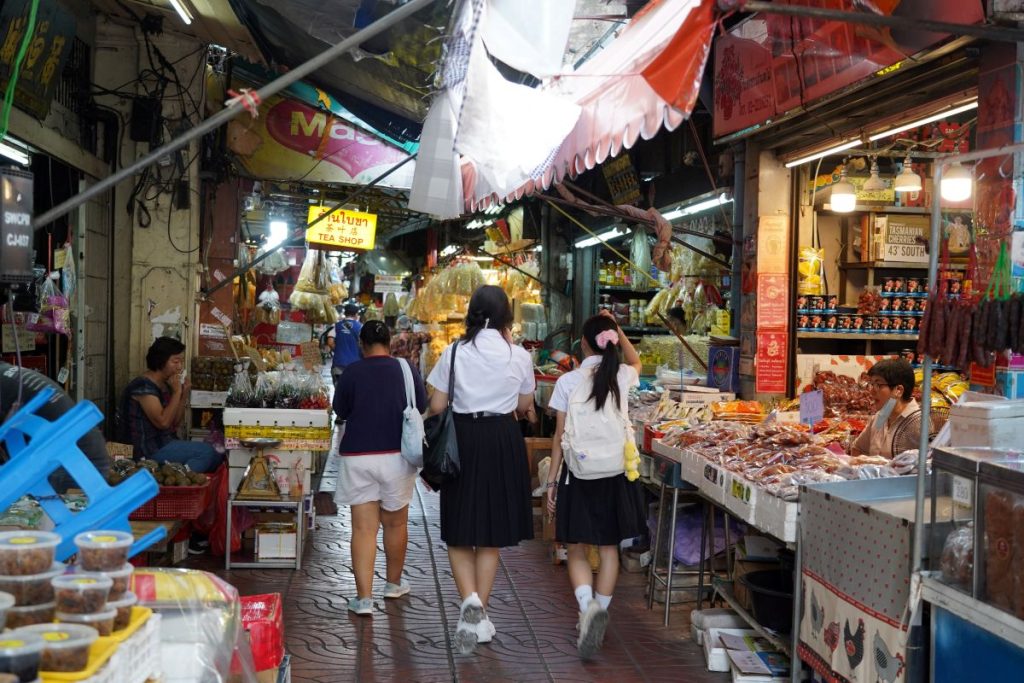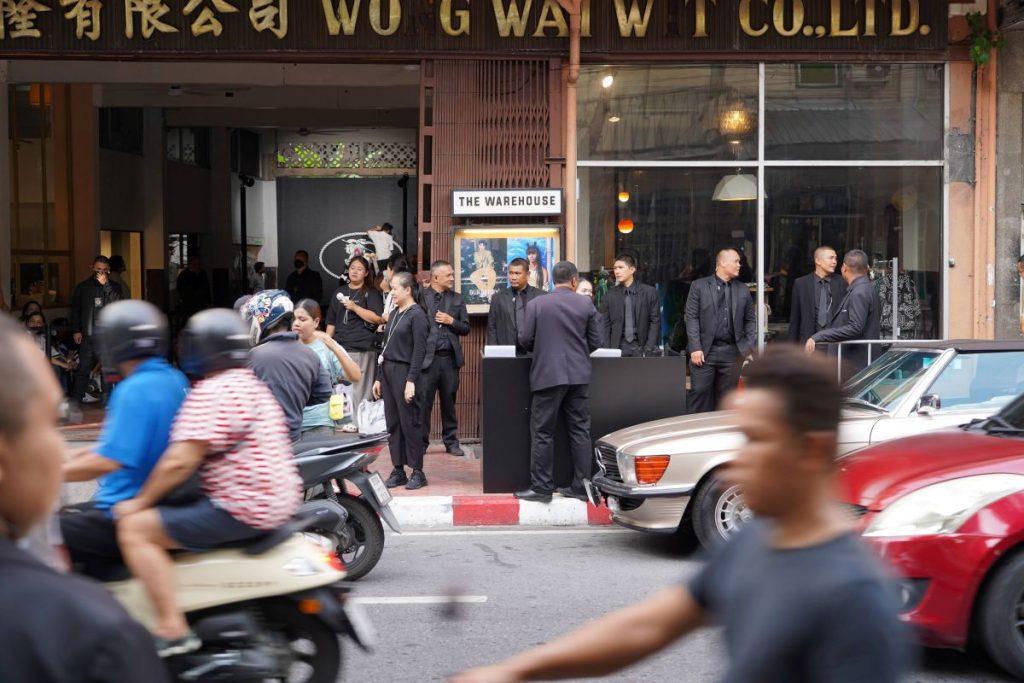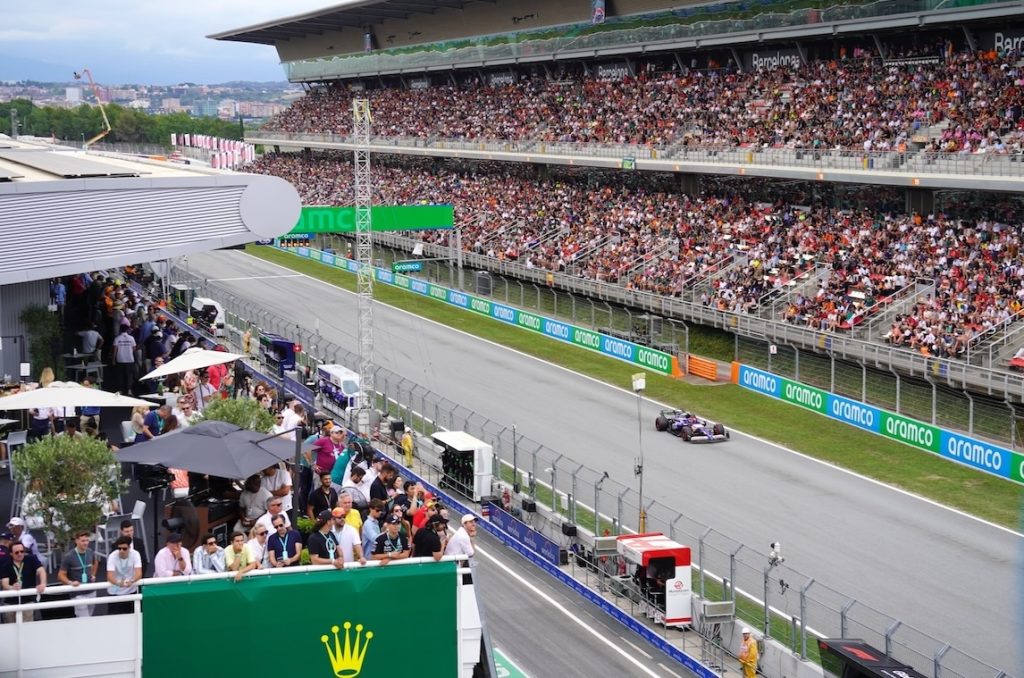Rumours of new locations joining the Formula 1 calendar come and go – but there are currently two destinations for which the rumours seem to have some substance. We take a look at how Thailand and a Grand Prix on the African continent could join the schedule in 2028.
News articles about brand new F1 destinations should usually be taken with a pinch of salt. Many of the exotic and unlikely projects never become anything more than a headline. Occasionally, however, there are plans which have some substance. At the moment, there are persistent rumours that a race on the African continent and a race in Thailand will be next to join Formula 1’s ever-growing calendar.
But what stage is each project at? How likely is it that the events will join the calendar in the next few years? And what would need to happen for the path to be paved for the new locations to be confirmed? Here’s all the latest on how the two projects could find their way onto the schedule.
Is Thailand Most Likely to Earn a Contract Next?
Insiders say that the Thai Grand Prix project is the most likely to succeed – and it is at the most advanced stages, too. Plans for a race in Thailand took major steps forward in June, when the Thai cabinet approved the bid to bring Formula 1 to the streets of Bangkok, securing the funding for the race to become a reality.
The current plan is for F1 to take to the streets in the Chatuchak Park area of the Thai capital, north of the city centre. In a news conference, spokesperson Jirayu Houngsub cited an initial five-year deal for the event – running from 2028 to 2032, worth over $1 billion.


Talks with Formula 1 have been ongoing for some time. In May 2024, then-Prime Minister of Thailand Srettha Thavisin met with Formula 1 CEO Stefano Domenicali, following a visit to Thailand by Domenicali one month prior. Then, after a change of government, new Prime Minister Paetongtarn Shinawatra met with Domenicali to re-visit the plans. The sport confirmed the meeting in a social media post, in which Domenicali was quoted as saying:
“I was delighted to meet with Paetongtarn Shinawatra, the Prime Minister of Thailand, and her team today to discuss their impressive plans to host a race in Bangkok. I am looking forward to continuing our discussions in the weeks and months ahead.”
Following that, a Memorandum of Understanding was signed, according to the Bangkok Post, which is the next step in conducting feasibility reviews, focused on the track layout, its socio-economic impact and sustainability.

British-born Thai driver Alex Albon has involvement with the plans and recently described the project as “really promising”. Talking about the track layout he said:
“I wouldn’t call it your classic street track. Not the ones that we usually see in the last few years. I think it’s got more character than that, which is positive.”
It’s likely that the next news we hear about the Thai Grand Prix will be the result of the feasibility review, which – if it has a positive outcome – will pave the way for the event to be officially confirmed.
How Close is F1’s Return to Africa?
The situation in Africa is a little more complicated. F1 bosses have long been keen on the sport returning to Africa. In May, Stefano Domenicali said he expects there to be no solution in the short term, but revealed earlier that there are three African countries with serious interest in hosting a Grand Prix.
The long-standing speculation about F1’s return to Africa began with murmurs of a potential return to Kyalami – the circuit that last hosted the South African Grand Prix back in 1993. There have been numerous setbacks to plans for South Africa’s return to the Grand Prix stage.
Back in 2022, it was alleged that the South African Grand Prix was lined up to replace the Belgian Grand Prix on the following season’s Formula 1 calendar. However, the deal fell through and Circuit de Spa-Francorchamps was instead handed a single-year contract extension. The Kyalami bid then went cold, allegedly due to political reasons – though headlines still suggested that a return to the track could be on the cards for 2025.
With no further news on the Kyalami bid since, another place of interest in South Africa is Cape Town. It is understood that a street circuit layout similar to that used for Formula E’s only visit to the city in 2023 is being considered as a starting point for the F1 track. An update was supplied in April 2025, in which organisers claimed the street track could house up to 250,000 fans, but news on the project has been silent since then.
Outside of South Africa, two other projects are being considered. In 2024, the FIA’s end-of-year prize giving was held in Rwanda and, ahead of the ceremony, the country’s President Paul Kagame revealed that his country was bidding for an F1 race. The potential track has been designed by former F1 driver Alex Wurz and will be located on land 40km outside of the capital Kigali. There has been little mention of the project since it first made headlines late last year.
Step forward, Morocco. In May 2025, RacingNews365 reported that a new project in the northwestern country could join the push for Formula 1’s return to the African continent. Formula 1 has raced in Morocco only once previously, when the final round of the 1958 season took place at the Ain-Diab Circuit – one of only 11 tracks which has hosted only a single World Championship event. A race was also held at the track in 1957, but it was not given championship status.
The new project is located 20km south from Tangiers and is part of a plan to boost the local economy with 10,000 new jobs, incorporating a Grade 1 race track, a shopping mall, a theme park, hotels and a marina.
Former McLaren team principal Eric Bouillier has involvement in Morocco’s bid but he himself has conceded that the event featuring on the calendar is a “long shot”. Of the four African projects, it appears that the Kyalami and Cape Town bids are currently most likely to be given the green light.
Which Races Will Be On The 2028 Formula 1 Calendar?
So how could Thailand and a race in Africa find their way onto the Formula 1 calendar by 2028? As of August 2025, there are 19 races confirmed to appear on the Formula 1 calendar until at least 2028, with a total of 24 available slots on the schedule under the current regulations.
It’s possible that the regulations will be updated in the next few years to increase the maximum number of rounds to 25, but that would be controversial given that many members of the paddock feel that 24 rounds is already the absolute maximum feasible number of races per year.
Although 19 races’ contracts last until at least 2028, only 18 of those events will appear on the calendar that season. That is because the Belgian Grand Prix will appear on a rotational basis from 2028 onwards, with 2028 set to be the first season to not feature the Spa race on the schedule since 2006.
Of races which appear on the calendar in 2025 and have not confirmed their presence on the 2028 schedule, there are two which we know will not feature. In December 2024, Dutch Grand Prix organisers confirmed that 2026 will be Formula 1’s last visit to Zandvoort. Meanwhile, the 2025 Emilia Romagna Grand Prix was F1’s final appearance at Imola, with it missing out on a position on the recently-revealed 2026 calendar.

Given that Imola missed out on a spot on the calendar due to F1 not wanting to have more than one race in a country (the United States aside), it seems unlikely that Circuit de Barcelona-Catalunya will extend its tenure beyond the end of its current contract in 2026. Spain will have two races in 2026: the aforementioned Barcelona Grand Prix and the Spanish Grand Prix at its new home in Madrid, which holds a contract through to 2035.
Another race without an officially confirmed contract in 2028 is the Las Vegas Grand Prix, though given F1’s major investment into the race and the fact that the sport has an agreement in principle to utilise the famous Las Vegas Strip for racing into the 2030s, it appears that the newest night race is a dead cert on the 2028 schedule. It has been reported the contract for the Las Vegas race has already been extended to 2027 – but there’s yet to be any official confirmation from Formula 1.
That leaves Circuit of the Americas and Baku City Circuit as the two circuits without contracts for the 2028 season. Neither race is believed to be at risk – the United States Grand Prix is one of the best-attended rounds each season, while the Azerbaijan Grand Prix is believed to pay one of the highest hosting fees of any event on the calendar.
Running the math, this means there are 21 current races which are more than likely to appear on the F1 calendar in 2028. That number becomes 22 if we add in whichever race will alternate with the Belgian Grand Prix, which has not yet been confirmed – though Portugal has been mooted as a possible option. Conveniently, all of this leaves two spaces available on the schedule for 2028 – which could be filled by Thailand and an African race.
What Happens Next?
Any announcement about new races usually comes long before the race takes place for the first time. For the latest additions to the calendar, Madrid’s addition to the calendar was confirmed 32 months before its first appearance, while Las Vegas was confirmed 20 months before it made its debut in November 2023. Therefore, it seems likely that announcements for new races in 2028 can be expected before the end of 2026 at the latest.
The first major step is securing a Memorandum of Understanding – which the Bangkok project reportedly has already done. Albeit non-binding, it is the first major step in showing serious intent to host a future Grand Prix. As mentioned above, a feasibility review of each project will need to take place, determining if the location is actually capable of hosting a Formula 1 race.
Then, there are other considerations to be made. The track must be designed – or, if already existing, upgraded – to FIA Grade 1 standards, the standard required to host a Formula 1 race. The circuit layout must be approved, though it is not unusual for layouts to be adapted after official announcements are made.

The track is subject to an inspection by the governing body prior to its inaugural race. This is more tricky when dealing with street circuits, which bring their own challenges – like city permits, traffic management plans and environmental compliance.
Then, in theory, the first race weekend will take place without a hitch. Though that’s not always the reality, however, as proven on the first day of action at the inaugural Las Vegas Grand Prix in 2023. Opening practice was cancelled just minutes after the green flag was shown for the first time when Carlos Sainz’s Ferrari hit a loose drain cover. The second practice session was ultimately delayed until 2:30am!


























